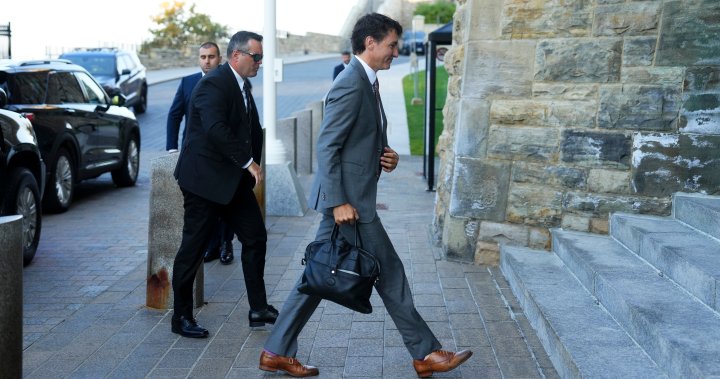In a major byelection defeat, the Liberal Party lost their stronghold of LaSalle-Émard-Verdun to the Bloc Québécois, signaling a need for the party to focus on regaining support. Prime Minister Justin Trudeau acknowledged the loss, stating that while it would have been nicer to win and hold Verdun, there is still work to be done. This defeat marked the second loss of a stronghold for the Liberals this summer, following their loss in Toronto-St. Paul’s in June. Trudeau emphasized the importance of Canadians understanding the choice they have in the next election and pledged to continue working towards the kind of country they aspire to be.
Elections Canada reported that the Bloc Québécois won the LaSalle-Émard-Verdun seat by just 248 votes ahead of the Liberals. The seat had become vacant when former justice minister David Lametti left politics. Despite this defeat, support for Trudeau and his Liberal government has hit a new low according to a recent Ipsos poll. The approval rating for the Trudeau government has decreased to just over one-third of Canadians, down by four points since June. Darrell Bricker, global CEO of Ipsos public affairs, highlighted that it is not just the government’s message that is unappealing to voters but also the messenger, referring to Trudeau.
Polling by Ipsos for Global News indicated that a slight majority of Canadians do not want an early election, despite the lower approval rating for the Trudeau government. Under fixed election date laws, a federal election must take place no later than October 2025. In another significant byelection, the NDP held onto the Elmwood-Transcona riding in Winnipeg. The NDP’s Leila Dance emerged victorious over Conservative candidate Colin Reynolds, with support from the community for priorities such as healthcare and cost of living. Elmwood-Transcona has predominantly elected a New Democrat in elections since the riding’s formation in 1988, with this win maintaining that trend.
The NDP’s victory in the Elmwood-Transcona byelection showcased the party’s continued support in the region, with the community expressing alignment with NDP priorities. The seat became available when former member of Parliament Daniel Blaikie resigned to join the Manitoba government. Despite the NDP winning the night with 48.1% of the votes, the Conservatives managed to increase their share of the vote compared to the 2021 general election. The close battle in this riding highlighted the ongoing political landscape in Canada and the diversity of opinions and preferences among voters. The results of these byelections underscore the need for political parties to connect with voters and address their concerns and priorities effectively.
The recent byelection results in Canada have emphasized a complex political landscape, with parties experiencing wins and losses in key ridings. The defeat of the Liberals in LaSalle-Émard-Verdun and the subsequent decline in support for the Trudeau government highlight the challenges and opportunities facing the party as they prepare for the next federal election. The NDP’s successful retention of the Elmwood-Transcona riding demonstrates the party’s continued appeal in certain regions of the country. As Canada approaches the next federal election, political parties will need to engage with voters effectively, address their concerns, and present compelling visions for the future to secure their support. The byelection results serve as a reminder of the ever-evolving nature of Canadian politics and the importance of responding to the needs and aspirations of the electorate.


